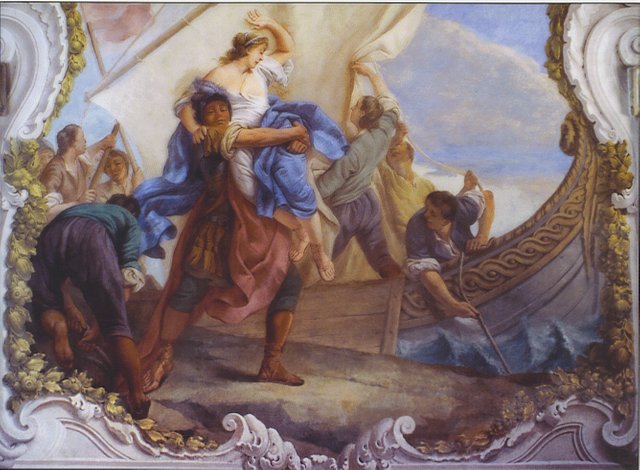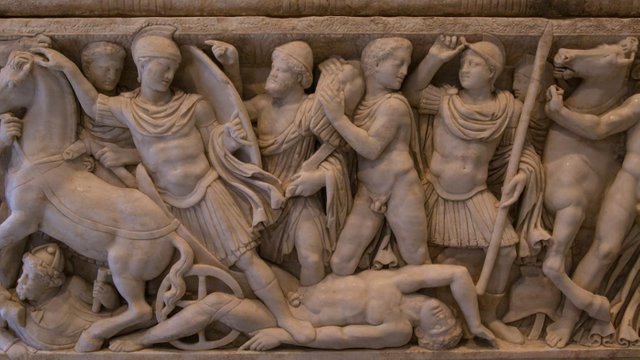The Trojan mythology
When Peleus, king of Phythia, married the sea-nymph Thetis, all the gods were invited to the wedding. Only one goddess was excluded from the celebration: Eris, goddess of discord and quarrel. Full of anger, she nevertheless appeared at the party and threw a golden apple with the inscription "For the Most Beautiful!" Among the guests. Among the three goddesses Hera, Athena and Aphrodite broke out a squabble, since everyone wanted to claim the apple for themselves. Finally, Zeus spoke a word of power to end the dispute. Paris, the youngest son of the Trojan King Priamos, should make the decision.
Together with the messenger of the god Hermes, the three goddesses went to Mount Ida, where the young man guarded his father's herds. All three immediately courted him and promised him gifts if the choice fell on them. Hera holds out the dominion over the earth, Athena heroes glory and Aphrodite the most beautiful woman in the form of Helena. The fabulous beauty of Helena had already reached Paris and he decided on Aphrodite. Full of anger and vindictiveness, Hera and Athena turned away from Paris.
Aphrodite now led her protege to Sparta to King Menelaus, whose wife was the beautiful Helen. With Aphrodite's help, Paris won the affection of Helena and in the absence of her husband they both fled to Troy. The husband thus betrayed immediately vowed revenge and prepared for a mighty campaign against Troy.
From the combination of Peleus and Thetis came the great hero Achilles. Thetis loved her son very much and wanted to gain immortality for him. So she dipped the newborn in the river Styx, which ran through the underworld Hades. She held him by the heel and forgot to moisten it as well. And so it came about that Achilles should be vulnerable at this point.
When Menelaus learned of the robbery of his wife, he immediately went to Mycenae to see his brother Agamemnon. This shared the pain of his brother and was angry about this vicious denunciation of the right of hospitality. Together with the aged friend Nestor to Pylos they decided to travel all over Greece and call the princes to a campaign against Troy. Tlepolemos, a prince of Rhodes and a son of Heracles, was the first to join them and set up ninety ships for the war. Then followed Diomedes, the son of the hero Tydeus, with eighty ships. Thus, Greece gradually rose against the deceitful Troy, and finally only two famous princes were missing.

